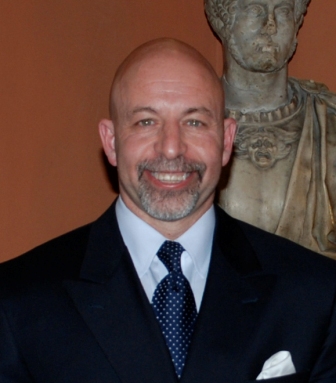 Prof. James Giordano, PhD, is Vice President for Academic Programs and Director of the Center for Neurotechnology Studies at the Potomac Institute for Policy Studies. In the latest post on his blog Neurosecurity, he writes about the ongoing debate over the application of neuroscience and neurotechnology in national security, intelligence and defense (NSID). Prof. Giordano notes that some in the neuroscientific community have called for their colleagues to disavow any involvement in NSID. But he argues that while ethical and moral probity must be maintained, avoidance is not the answer. Prof. Giordano writes, "Thus, I call for some – but certainly not all – neuroscientists and neuroethicists to be actively involved in the discussion and debate, as informed, experienced experts at those tables where guidelines and policies are made, to work proactively to provide lenses and voices to report what neuroscience can and cannot do, and to be participatory in the formulation of directives that shape and govern the ways that neuroS/T should – and should not – be utilized." Click here to read the post in full.
Prof. James Giordano, PhD, is Vice President for Academic Programs and Director of the Center for Neurotechnology Studies at the Potomac Institute for Policy Studies. In the latest post on his blog Neurosecurity, he writes about the ongoing debate over the application of neuroscience and neurotechnology in national security, intelligence and defense (NSID). Prof. Giordano notes that some in the neuroscientific community have called for their colleagues to disavow any involvement in NSID. But he argues that while ethical and moral probity must be maintained, avoidance is not the answer. Prof. Giordano writes, "Thus, I call for some – but certainly not all – neuroscientists and neuroethicists to be actively involved in the discussion and debate, as informed, experienced experts at those tables where guidelines and policies are made, to work proactively to provide lenses and voices to report what neuroscience can and cannot do, and to be participatory in the formulation of directives that shape and govern the ways that neuroS/T should – and should not – be utilized." Click here to read the post in full.
Past Events
Post-Europe's Parliamentary Elections 2014: Political, Social, Economic, and Security Implications
Opening Remarks:
Professor Don Wallace, Jr.
Chairman, International Law Institute
Eric Fusfield
Deputy Director of the B'nai B'rith International Center for Human Rights and Public Policy
Moderator:
Professor Yonah Alexander
Director, Inter-University Center for Terrorism Studies, and Senior Fe...
"South Asia Security Challenges: National, Regional, and Global Perspectives" June 18 2014
Potomac Institute for Policy Studies
International Center for Terrorism Studies
June 18, 2014
Part 1 - "Neurotechnology: Enhancing the Human Brain and Reshaping Society"
Potomac Institute for Policy Studies
Center for Neurotechnology Studies
June 30th 2014
"Neurotechnology: Enhancing the Human Brain and Reshaping Society" - Part 1
Part 2 - "Neurotechnology: Enhancing the Human Brain and Reshaping Society" on June 30th
Potomac Institute for Policy Studies
Center for Neurotechnology Studies
June 30th 2014
"Neurotechnology: Enhancing the Human Brain and Reshaping Society" - Part 2
ARG/MEU Returning Commander Speaker Series
Returning Commander Speaker Series
"The Navy and Marine Corps Team: First West Coast-based ARG/MEU to deploy with the Ospreys"
Potomac Institute for Policy Studies
May 15, 2014






